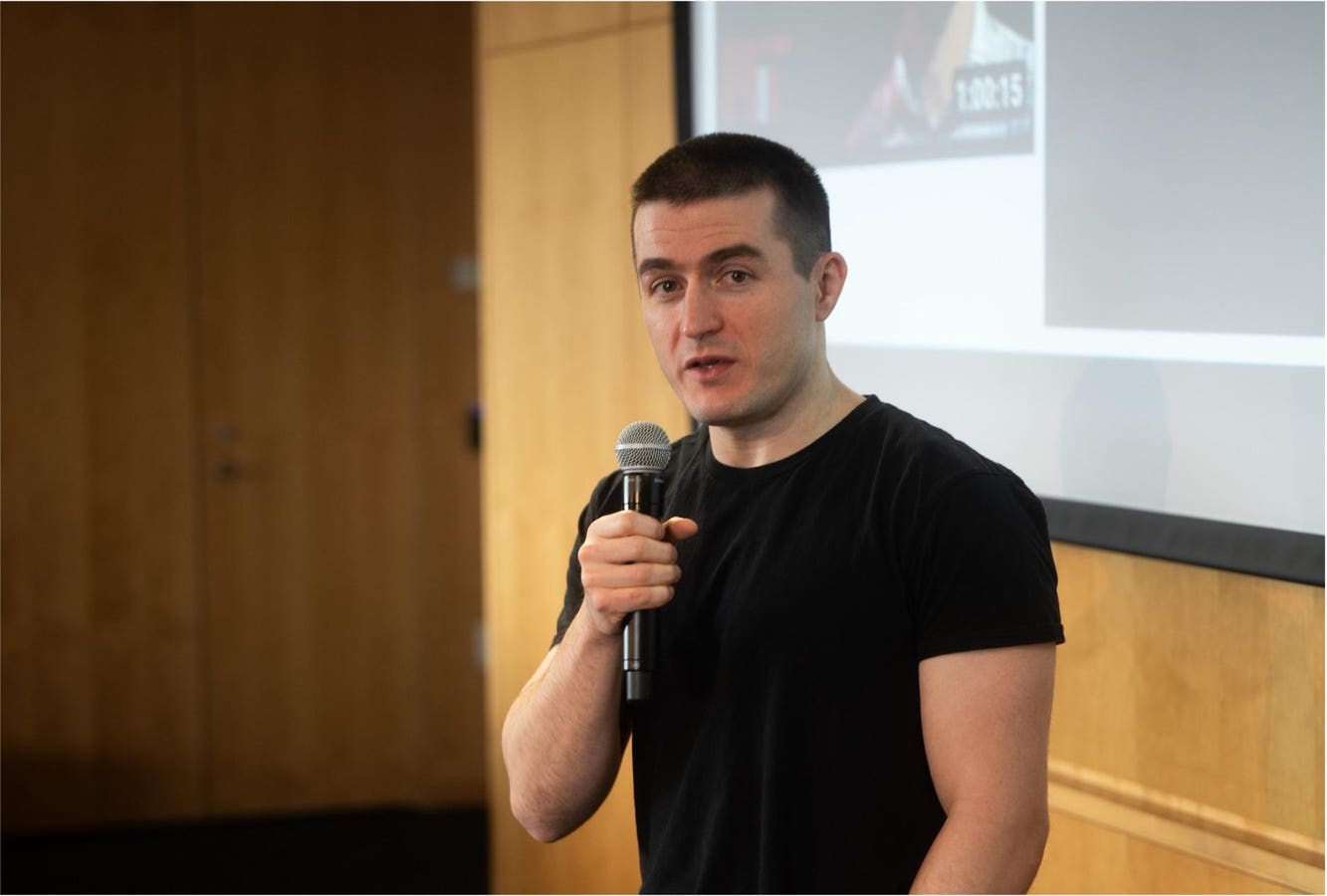Lex Friedman Weighs In On The Future Of AI, Language … And Existential Self-Reflection

When Lex Friedman visited our MIT AI Venture Studio class to talk about the future of AI, we got into some pretty interesting ideas about the near future.
Lex Fridman
John Werner
At the top of Lex’s comments, he talked about disruption – predicting that two new trillion-dollar companies will emerge out of the AI era, and suggesting that Google, Meta and Microsoft will likely not be able to pivot quickly enough to maintain their dominance.
In terms of where we might see this innovation, one of his focus points was on language. Lex pointed out that in America, we take it for granted that everyone speaks English – but around the world, there is an enormous market for real, precise speech translation. People, he said, speak many languages in an “intimate” way – and that requires precision on the part of the technology.
He also talked about the future of robotics, predicting that we’ll have hundreds of millions of robots in the home.
“The purpose of those robots is not to help you wash the dishes,” he said. “They’re going to be your friends, in the same way dogs and cats are.”
Both of his predictions make sense in that they address more of the human component of robot interaction, and not just your sort of average taskrabbit imaginings when it comes to a robot’s ‘job.’
Prior to that, he was also addressing the technology’s capacity for what he called “deep personalization.”
Lex Fridman presenting to MIT Class
John Werner
“Anything where there’s interaction going on with a product, all of that should be captured, all that should be converted into data,” he said. “And that’s going to be the advantage – the algorithms don’t matter … you have to be able to fine-tune it to each individual person, and do that, not across a single day or single interaction, but across a lifetime, where you share memories, the low, the highs, and the lows, with your large language model.”
That’s a compelling description of how we’re likely to use LLMs daily, through our lives, not just as occasional toys or utilities.
Now, here’s where it got really interesting – when we asked Lex ‘what are the best questions to ask yourself?’
After thinking a bit, he came back with this: “what is the best way to have impact?”
He talked about things like running a podcast, and building things out of code.
He also mentioned that fine line between being content and happy, and always being restless for change, referencing Marvin Minsky’s assertion that he always remained unsatisfied with past work.
“Always be grateful,” he said.
In the meantime, we put the same question into chatGPT – “what are the best questions to ask yourself?”
Here’s the first part of what we came up with:
“When it comes to self-reflection, there are several thought-provoking questions you can ask yourself. Some examples include: what is my life’s purpose? What is the most important thing I need to accomplish today? Do I believe I’m worthy of love and happiness?”
So there you have it – the existential response from one of our foremost independent media people and podcasters, and the same question put to one of our foremost AI models.
Are we going to see more of this kind of panel activity in the years to come, where you ask humans and robots the same questions, and compare their answers?
The answer is a resounding ‘yes!’
What do you think? Stay tuned for more on these exciting classes, and everything else going on in today’s AI world.
John Werner & Lex Fridman
John Werner



